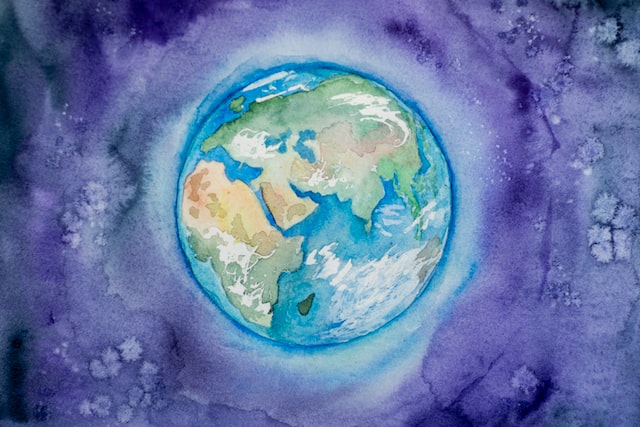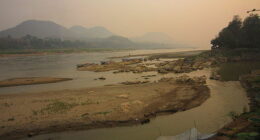Ecological studies focus on the interactions of living organisms with one another and their environment while environmental studies look at how human activity is effecting nature, pollution levels, climate change and other major issues.
What is Ecology?
(Photo by Kumiko SHIMIZU on Unsplash )

Ecology is the scientific study of the relationships between living organisms and their environment. It encompasses the interactions between living organisms, including humans, and their physical and biotic environment, which includes factors such as climate, geology, soil, water, and other living organisms.
Ecologists study the distribution, abundance, and diversity of organisms, as well as the processes that regulate these patterns. They also investigate the ways in which living organisms interact with their environment and with each other, such as through competition, predation, mutualism, and symbiosis.
Ecology plays a crucial role in understanding and addressing environmental issues such as climate change, habitat destruction, and biodiversity loss. By studying the complex relationships between organisms and their environment, ecologists provide insights into how we can better manage and conserve the natural world.
What is the Environment?
The environment is the sum of all the external conditions and influences that act upon an organism or system. The term can refer to both natural environments and artificially created environments, such as a laboratory or factory. The word environment derives from the French word environ, meaning “around” or “surroundings,” and was first used in its modern sense in the late 19th century.
What are Ecological and Environmental studies?
Ecological and environmental studies are fields of study that focus on the relationships between living organisms and their environment, as well as the impact of human activities on the natural world.
Ecological studies involve the scientific investigation of ecosystems, including the interactions between organisms and their physical and biotic environment. This includes the study of biodiversity, ecosystem function, and the processes that regulate the distribution and abundance of organisms.
Environmental studies, on the other hand, examine the ways in which human activities affect the natural world, including the atmosphere, water, soil, and biodiversity. This field involves the study of environmental problems such as climate change, pollution, habitat destruction, and resource depletion, as well as the development of strategies to mitigate or prevent these problems.
Both ecological and environmental studies are interdisciplinary fields, drawing on knowledge from biology, geology, chemistry, physics, social sciences, and other disciplines. They are important for understanding and addressing the environmental challenges facing the world today, and for developing sustainable solutions that promote the health and well-being of both humans and the natural world.
How is ecology and environment different?
Ecological and environmental studies are related fields of study that share some similarities but also have key differences.
Ecological studies focus on the relationships between living organisms and their environment. Ecologists investigate the distribution, abundance, and diversity of organisms, as well as the processes that regulate these patterns. They also study the interactions between organisms and their environment, including the ways in which living organisms interact with each other and with their physical surroundings. Ecological studies are often focused on understanding the structure and function of ecosystems.
Environmental studies, on the other hand, examine the impact of human activities on the natural world, including the atmosphere, water, soil, and biodiversity. Environmental scientists investigate environmental problems such as pollution, climate change, habitat destruction, and resource depletion, as well as the development of strategies to mitigate or prevent these problems. Environmental studies are often focused on understanding the impact of human activities on the environment and developing solutions to address these impacts.
While ecological and environmental studies share a common goal of understanding and addressing environmental issues, they have some key differences in their approach and focus. Ecological studies are often more focused on the study of natural systems and the interactions between living organisms and their environment, while environmental studies are more focused on understanding and addressing the impacts of human activities on the natural world. Both fields are important for developing sustainable solutions to the environmental challenges facing the world today.
What is the difference between ecological and environmental engineering?
Ecological engineering and environmental engineering are two related but distinct fields of study.
Ecological engineering is focused on designing and constructing ecosystems to provide ecosystem services such as water treatment, soil conservation, and habitat creation. It is an interdisciplinary field that draws on principles from ecology, engineering, and other sciences to develop sustainable solutions for environmental problems. Ecological engineers use natural systems such as wetlands and forests to provide ecosystem services, and they may also design and build artificial ecosystems such as constructed wetlands or green roofs.
Environmental engineering, on the other hand, is focused on designing and implementing solutions to environmental problems caused by human activities. This may include developing systems for water and air pollution control, waste management, and environmental remediation. Environmental engineers use principles from engineering, chemistry, and biology to design and implement these solutions. They may work on projects such as designing wastewater treatment plants or developing strategies to reduce greenhouse gas emissions.
While both ecological and environmental engineering are focused on developing sustainable solutions for environmental problems, ecological engineering has a stronger focus on using natural systems to provide ecosystem services, while environmental engineering is more focused on developing technological solutions to environmental problems caused by human activities.
How human activity affects ecology and the environment
(Photo by Jan Kopřiva on Unsplash )

Human activity has a significant impact on ecology and the environment. The way we live, the food we eat, the products we use, and the energy we consume all have an effect on ecosystems and the planet.
For example, habitat loss is one of the biggest threats to biodiversity. When natural habitats are destroyed or degraded, species are lost and ecosystems are destabilized. This can lead to a domino effect where a chain reaction of negative impacts is set off throughout an ecosystem.
In addition, pollution from human activities is a major environmental problem. It can come in many forms, such as air pollution, water pollution, and soil contamination. These pollutants can have harmful effects on plants, animals, and humans. They can also accumulate in food webs, causing problems up the food chain.
Climate change is another huge issue caused by human activity. Greenhouse gas emissions from burning fossil fuels are trapping heat in the atmosphere and causing global temperatures to rise. This is resulting in extreme weather events, melting glaciers, rising sea levels, and other devastating impacts.
What is the basic concept of ecology and environment?
The basic concept of ecology is the study of the relationships between living organisms and their environment. The basic concept of environment is the study of the interactions between the physical, chemical, and biological components of the Earth.
What are the types of Ecology?
Ecology is the study of how organisms interact with their environment. There are two main types of ecology:
Behavioral ecology: This type of ecology focuses on how animals behave in order to survive and reproduce. For example, behavioral ecologists might study how animals choose their mates, what kind of habitat they prefer, or how they defend themselves from predators.
Population ecology: This type of ecology focuses on how populations of animals interact with each other and their environment. For example, population ecologists might study how a particular species is affected by changes in the environment, or how competition among different species affects the distribution of resources.
What are the types environment?
There are two types of environment: Ecological and Environmental. Both refer to the natural world, but they have different meanings.
Ecological refers to the relationship between living things and their environment. It includes the study of how animals and plants interact with each other and their surroundings.
Environmental refers to the impact humans have on the planet. It includes the study of pollution, climate change, and other ways humans are affecting the Earth.
Featured Image By – Photo by Elena Mozhvilo on Unsplash








